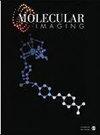High SUVs Have More Robust Repeatability in Patients with Metastatic Prostate Cancer: Results from a Prospective Test-Retest Cohort Imaged with 18F-DCFPyL
IF 2.4
4区 医学
Q2 Medicine
引用次数: 6
Abstract
Objectives In patients with prostate cancer (PC) receiving prostate-specific membrane antigen- (PSMA-) targeted radioligand therapy (RLT), higher baseline standardized uptake values (SUVs) are linked to improved outcome. Thus, readers deciding on RLT must have certainty on the repeatability of PSMA uptake metrics. As such, we aimed to evaluate the test-retest repeatability of lesion uptake in a large cohort of patients imaged with 18F-DCFPyL. Methods In this prospective, IRB-approved trial (NCT03793543), 21 patients with history of histologically proven PC underwent two 18F-DCFPyL PET/CTs within 7 days (mean 3.7, range 1 to 7 days). Lesions in the bone, lymph nodes (LN), and other organs were manually segmented on both scans, and uptake parameters were assessed (maximum (SUVmax) and mean (SUVmean) SUVs), PSMA-tumor volume (PSMA-TV), and total lesion PSMA (TL-PSMA, defined as PSMA − TV × SUVmean)). Repeatability was determined using Pearson's correlations, within-subject coefficient of variation (wCOV), and Bland-Altman analysis. Results In total, 230 pairs of lesions (177 bone, 38 LN, and 15 other) were delineated, demonstrating a wide range of SUVmax (1.5–80.5) and SUVmean (1.4–24.8). Including all sites of suspected disease, SUVs had a strong interscan correlation (R2 ≥ 0.99), with high repeatability for SUVmean and SUVmax (wCOV, 7.3% and 12.1%, respectively). High SUVs showed significantly improved wCOV relative to lower SUVs (P < 0.0001), indicating that high SUVs are more repeatable, relative to the magnitude of the underlying SUV. Repeatability for PSMA-TV and TL-PSMA, however, was low (wCOV ≥ 23.5%). Across all metrics for LN and bone lesions, interscan correlation was again strong (R2 ≥ 0.98). Moreover, LN-based SUVmean also achieved the best wCOV (3.8%), which was significantly reduced when compared to osseous lesions (7.8%, P < 0.0001). This was also noted for SUVmax (wCOV, LN 8.8% vs. bone 12.0%, P < 0.03). On a compartment-based level, wCOVs for volumetric features were ≥22.8%, demonstrating no significant differences between LN and bone lesions (PSMA-TV, P =0.63; TL-PSMA, P =0.9). Findings on an entire tumor burden level were also corroborated in a hottest lesion analysis investigating the SUVmax of the most intense lesion per patient (R2, 0.99; wCOV, 11.2%). Conclusion In this prospective test-retest setting, SUV parameters demonstrated high repeatability, in particular in LNs, while volumetric parameters demonstrated low repeatability. Further, the large number of lesions and wide distribution of SUVs included in this analysis allowed for the demonstration of a dependence of repeatability on SUV, with higher SUVs having more robust repeatability.高suv在转移性前列腺癌患者中具有更强的重复性:来自18F-DCFPyL成像的前瞻性测试-再测试队列的结果
目的在接受前列腺特异性膜抗原(PSMA-)靶向放射性配体治疗(RLT)的癌症(PC)患者中,较高的基线标准化摄取值(SUV)与改善的结果有关。因此,决定RLT的读者必须对PSMA吸收指标的可重复性有确定性。因此,我们旨在评估18F-DCFPyL成像的大队列患者病变摄取的重测可重复性。方法在这项经IRB批准的前瞻性试验(NCT03793543)中,21名有组织学证实的PC病史的患者在7天内(平均3.7天,范围1至7天)接受了两次18F DCFPyL PET/CT。在两次扫描中手动分割骨骼、淋巴结(LN)和其他器官的病变,并评估摄取参数(最大值(SUVmax)和平均值(SUV平均值)SUVs)、PSMA肿瘤体积(PSMA-TV)和总病变PSMA(TL-PSMA,定义为PSMA−TV×SUVmean))。重复性使用Pearson相关性、受试者内部变异系数(wCOV)和Bland-Altman分析来确定。结果共描绘了230对病变(177个骨骼、38个LN和15个其他),显示SUVmax(1.5-80.5)和SUVmean(1.4-24.8)的范围很广。包括所有疑似疾病的部位,SUVs具有很强的扫描间相关性(R2≥0.99),SUVmeans和SUVmax的重复性很高(wCOV分别为7.3%和12.1%)。与较低SUV相比,高SUV的wCOV显著改善(P<0.0001),这表明相对于潜在SUV的规模,高SUV更具可重复性。然而,PSMA-TV和TL-PSMA的重复性较低(wCOV≥23.5%)。在LN和骨病变的所有指标中,扫描间相关性再次很强(R2≥0.98)。此外,基于LN的SUVmean也获得了最好的wCOV(3.8%),与骨病变相比显著降低(7.8%,P<0.0001)。SUVmax(wCOV,LN 8.8%vs.骨12.0%,P<0.003)也出现了这种情况。在基于室的水平上,体积特征的wCOV≥22.8%,表明LN与骨病变之间没有显著差异(PSMA-TV,P =0.63;TL-PSMA,P =0.9)。对整个肿瘤负荷水平的研究结果也在最热病变分析中得到了证实,该分析调查了每位患者最严重病变的SUVmax(R2,0.99;wCOV,11.2%)。结论在这种前瞻性重测环境中,SUV参数表现出高可重复性,尤其是在LNs中,而体积参数表现出低可重复性。此外,该分析中包括的SUV的大量病变和广泛分布允许证明可重复性对SUV的依赖性,较高的SUV具有更稳健的可重复性。
本文章由计算机程序翻译,如有差异,请以英文原文为准。
求助全文
约1分钟内获得全文
求助全文
来源期刊

Molecular Imaging
生物-核医学
CiteScore
4.50
自引率
3.60%
发文量
21
审稿时长
>12 weeks
期刊介绍:
Molecular Imaging is a peer-reviewed, open access journal highlighting the breadth of molecular imaging research from basic science to preclinical studies to human applications. This serves both the scientific and clinical communities by disseminating novel results and concepts relevant to the biological study of normal and disease processes in both basic and translational studies ranging from mice to humans.
 求助内容:
求助内容: 应助结果提醒方式:
应助结果提醒方式:


